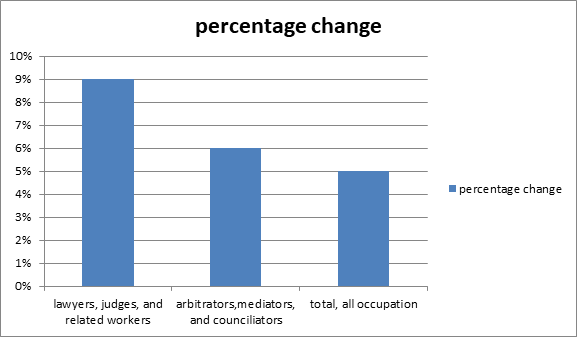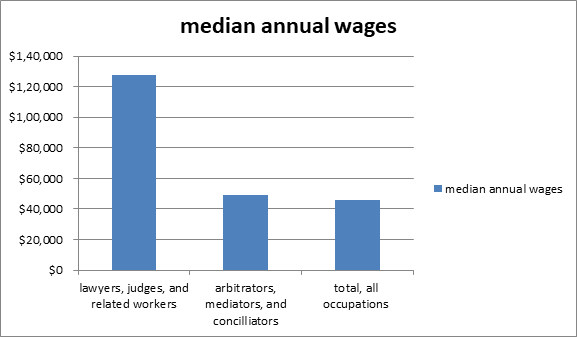What is conflict management and resolution?
Conflict management and resolution professionals play a crucial role in fostering constructive approaches to conflict, thereby enabling groups, societies, and cultures to harness its positive and creative possibilities. By utilizing various insights and tools, these experts aim to steer individuals away from destructive and violent tendencies often associated with conflicts. Instead, they facilitate the process of transforming conflicts into opportunities for growth and positive change. This transformation allows individuals and communities to embrace conflict as a means of generating innovative solutions and strengthening relationships.
General admission requirements
| Degree | Credits | Duration | Admission requirements |
| Master’s degree | 40-60 credits | 2-5 years | GMAT or GRE scores official undergraduate and graduate transcripts |
10 Affordable Master’s degrees in conflict management and resolution
1.California State University
Program: M.A. in Negotiation, Conflict Resolution & Peace building
Tuition: $321 per credit hour
Accreditation: Both the school and the program are accredited by WASC
Financial aid: Available with 81% of the students receiving the aid.
The program offers various online features, such as chat and discussion rooms, as well as electronic submission of assignments. Additionally, there is a secure portal for record-keeping purposes. The curriculum consists of 24 mandatory units, covering subjects like NCRP Skills, Concepts and Tools, Ethics of Negotiation, Conflict Resolution, and Peacebuilding, Negotiation Tactics, and Mediation. Moreover, you’ll have the option to choose three or four electives from a range of courses, including Online Dispute Resolution, Marital and Family Mediation, Labor Conflict, and Conflict and the Media. An internship in Conflict Resolution can also be pursued as one of your electives. To earn the MA-NCRP degree, you’ll need to complete either a Capstone project or a thesis.
2.Touro University Worldwide
Program: M.A. in Dispute Resolution
Tuition: $500 per credit hour
Accreditation: The program and the school are accredited by WASC.
Financial aid: Available with 93% of the students receiving the aid.
To obtain the MDR (Master’s in Dispute Resolution), you must successfully finish 12 courses, covering essential topics like Foundations of Conflict Resolution, Negotiation, Mediation, and Alternative Dispute Resolution. The program also includes four practice-oriented courses: Arbitration, Negotiation & Mediation, Facilitation, and Restorative Practice. Through these practice courses, you gain hands-on experience in dispute resolution by engaging in simulated exercises to apply and hone your skills.
3.George Mason University
Program: M.S. in Conflict Analysis and Resolution
Tuition: $507.25 per credit hour
Accreditation: The program and school are accredited by SACSCOC
Financial aid: Available with 75% of the students receiving the aid.
Within the program, students have the flexibility to select from six concentrations, namely: Social Justice Advocacy, Dynamics of Violence, Inclusive Conflict Engagement, Conflict Sensitive Development and Resilience, Media, Narrative, and Public Discourse, as well as an Individualized Concentration. As a Mason S-CAR student, you actively participate in real-world conflict scenarios, gaining valuable hands-on experience. Moreover, S-CAR possesses the Point of View International Retreat and Research Center, offering additional resources and opportunities for research and practical learning.
4.California University of Pennsylvania
Program: M.A. in Conflict Resolution
Tuition: $516 per credit hour
Accreditation: The program and school are accredited by AASCU.
Financial aid: Available with 78% of the students receiving the aid.
The program offers a comprehensive approach that combines theoretical study with real-world applications. Spanning five terms, it focuses on conflict analysis models, exploring diverse worldviews, and utilizing collaboration for reaching positive outcomes. Students also learn how to apply various conflict resolution theories effectively. Notably, the faculty of Cal U’s Conflict Resolution program boasts extensive research experience in the field of conflict resolution.
5.Abilene Christian University
Program: M.A. in Conflict Management & Resolution
Tuition: $650 per credit hour
Accreditation: The program and the school received accreditation through SACSCOC
Financial aid: Available with 67% of the students receiving the aid.
No matter which track you choose, the program requires completion of five core courses: Dynamics of Interpersonal Conflict, Theory, Negotiation, Mediation, and Conflict Management Systems Design. In addition to these core courses, if you opt for the General Track, you will undertake 21 hours of additional coursework, which may include courses like Family Conflict Dynamics, Dispute Resolution and the Legal System, and Ethics and Conflict Resolution. These additional courses in the General Track provide a comprehensive understanding of conflict resolution in various contexts.
6.Dominican University
Program: M.A. in Conflict Resolution
Tuition: $850 per credit hour
Accreditation: The program and school are accredited by HLC.
Financial aid: Available with 80% of the students receiving the aid.
In the second year of the program, students undertake the second intensive course called Negotiation, in addition to seven other compulsory courses. Some of these required courses encompass Ethics of Conflict Resolution, Psychology of Conflict, Religion and Conflict Resolution, and Conflict Resolution in the Workplace. Alongside the required courses, students also get to choose three elective courses from a variety of options. Elective offerings might include Family Conflict Resolution, International Conflict Resolution, and Conflict Management.
7.Bay Path University
Program: M.S. in Leadership & Negotiation
Tuition: $870 per credit hour
Accreditation: The school and the program are accredited by NECHE.
Financial aid: Available with 79% of the students receiving the aid.
The program emphasizes the practical application of educational theories in real-world settings. Over the duration of the program, you will complete 12 courses, which encompass subjects like Theory and Practice of Negotiation, Advanced Leadership and Negotiation Concepts, and Case Studies of Leadership and Negotiation. In addition, there are four lab courses dedicated to honing specific skills: Planning and Preparation Skills, Relational Skills, Challenging Situation Skills, and Intangible Skills. The program culminates in an Application Project and Capstone course, providing an opportunity to demonstrate your acquired knowledge and skills.
8.Dallas Baptist University
Program: Master of Business Administration Conflict Resolution Management Concentration
Tuition: $1,117 per credit hour
Accreditation: The program is accredited by ACBSP, the school by SACSCOC
Financial aid: Available with 90% of the students receiving the aid.
The core courses of the program encompass essential subjects such as Corporate Finance, Management Information Systems, Leadership in Management, and Business Ethics. Additionally, students are required to undertake four concentration courses, which include Conflict Resolution Management, Advanced Family Mediation, Advanced Business Mediation, and Employee Negotiations and Collective Bargaining. These concentration courses provide specialized knowledge and skills in the field of conflict resolution and mediation within various business contexts.
9.Arizona State University
Program: Master of Legal Studies, Emphasis in Conflict Resolution
Tuition: $1,525 per credit hour
Accreditation: The program and school are accredited by HCL.
Financial aid: Available with 76% of the students receiving the aid.
During the spring semester, there are additional course options available for students pursuing the MLS (Master of Legal Studies). These courses encompass Dispute Systems Design, Divorce and Family Mediation, Organizational and Workplace Dispute Resolution, and Psychology of Conflict. A significant component of the program is the practicum, providing students with valuable real-world experience to enhance their conflict resolution skills. To fulfill the requirements for the MLS degree, students must also complete six law credits. These credits consist of two courses: U.S. Law and Legal Analysis, as well as one core course in Torts, Contracts, Criminal Law, or Administrative Law.
10.Nova Southeastern University
Program: Master of Science in Conflict Analysis and Resolution
Tuition: $1,233 per credit hour
Accreditation: The program and the school received accreditation through SACSCOC
Financial aid: Available with 55% of the students receiving the aid.
The core courses of the program comprise Mediation Theory and Practice, Negotiation Theory and Practice, and Professional Practice and Ethics. Moreover, you will participate in two experiential courses, Practicum I and II, which offer supervised field experience, enabling you to develop practical skills and establish valuable career connections. These experiential courses are invaluable for gaining real-world experience in the field of mediation and negotiation.
Job outlook for Negotiator, Arbitrator and mediators
The job outlook for arbitrators, mediators, and conciliators indicates a projected growth of 6 percent from 2021 to 2031, which is about the same rate as the average for all occupations.
Over the next decade, approximately 500 new job openings for arbitrators, mediators, and conciliators are expected to become available each year, on average. Many of these opportunities will arise from the need to replace workers who either switch to other occupations or leave the workforce, such as retiring.
Percentage employment change projected 2021-31

Source: U.S. Bureau of Labor Statistics, Employment Projections Program
The median annual wages

Source: U.S. Bureau of Labor Statistics
Jobs available for a graduate in Conflict Resolution
Obtaining a degree in conflict management and resolution opens up diverse career opportunities in various fields, including business, political science, sociology, psychology, criminal justice, healthcare, and more. The following conflict resolution jobs highlight distinct aspects of working in this dynamic field:
| Occupation | Median annual wages |
| Conflict mediator | $63,930 |
| Restorative practioner | $41,844 |
| UN civil service officer | $90,00 |
| Diversity, equity and inclusion manager | $92,491 |
| Customer success manager | $62,682 |
| Policy Advocate | $53,634 |
| Human resources specialist | $121,220 |
is a degree in conflict management and resolution worth it?
Yes, pursuing a master’s in conflict resolution can lead to a rewarding and fulfilling career, offering intriguing opportunities and competitive compensation. Graduates can explore various fields where mediators and negotiators are in demand, such as family law, healthcare, finance, public policy, and environmental protection. These professionals play a vital role in facilitating positive outcomes and promoting cooperation among parties involved in conflicts, making their work highly meaningful and impactful.

